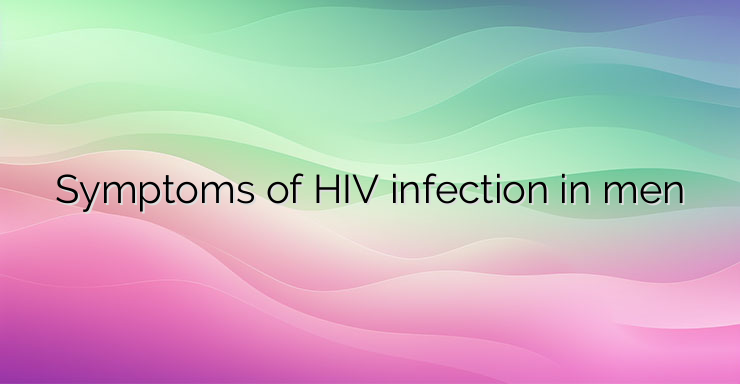What are the common symptoms of acute HIV infection? Approximately 80% of people who become infected with HIV experience flu-like symptoms within two to four weeks of infection. This flu-like condition is known as acute HIV infection. Acute HIV infection is the first stage of HIV and lasts until the body creates antibodies against the virus. The most common symptoms of this stage of HIV include: Body rash; Fever; Sore throat; Strong headache; Less common symptoms may include: Fatigue; Swollen lymph nodes; Mouth or genital ulcers Muscle pain; Joint pains; Nausea and vomiting; Night sweats Symptoms usually last an average of one to two weeks. Anyone who has these symptoms and thinks they may have HIV should consider seeing a doctor and getting tested for the infection. What are the symptoms of HIV infection that are specific only to men? Most HIV symptoms are usually the same in women and men. One of the symptoms of HIV, which is possible only in men, is the formation of an ulcer on the penis. Genital rashes are not always a symptom of HIV. They can be the result of a number of other conditions which include: Fungal infection – associated with wearing tight and tight clothing for too long; Balanitis – inflammation of the head of the penis in men swelling, leading to swelling; Contact dermatitis, which can develop as a result of allergens; Scabies – a contagious skin disease caused by a type of parasitic mite (Sarcoptes scabiei); Rashes can also indicate the presence of another sexually transmitted infection, such as: Syphilis; Herpes; Genital lice; Chancroid HIV can also lead to hypogonadism, or a disorder in the production of sex hormones, in both sexes. However, the effects of hypogonadism in men are more pronounced than the effects in women. A symptom that can be caused by low testosterone levels, one aspect of hypogonadism, is erectile dysfunction. Bibliography: National Health Service (NHS). HIV and AIDS: Symptoms Healthline. HIV Symptoms in Men


Leave a Reply